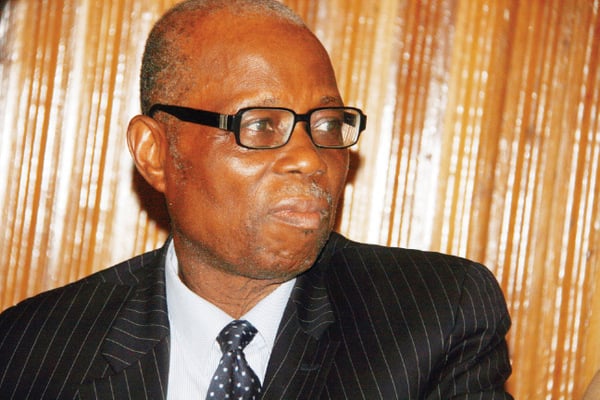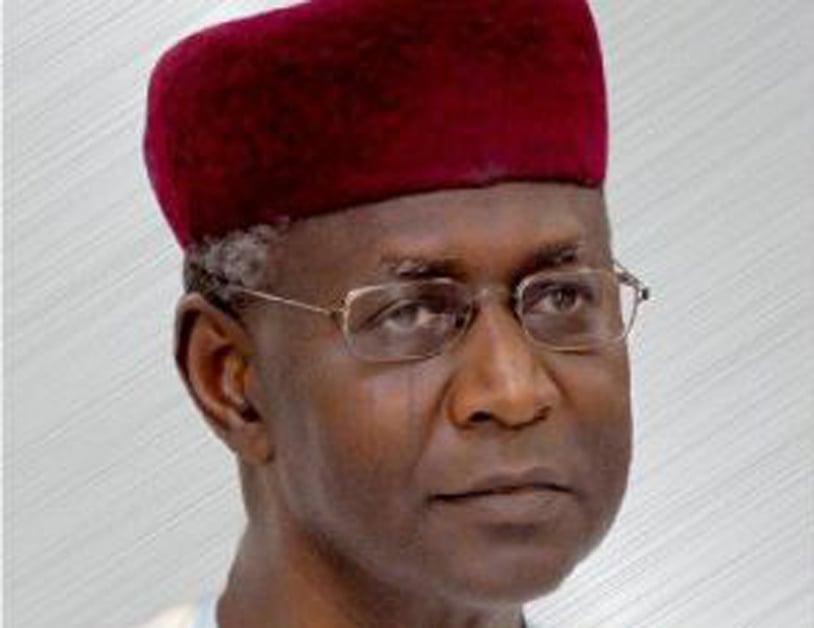First human trial for vaccine against coronavirus begins in the US
If anything kills over ten (10) million people in the next few decades, it’s most likely to be a highly infectious virus, rather than a war. Not missiles, but microbes. Now part of the reason for this is that we’ve invested a huge amount into nuclear deterrence, we’ve actually invested little in a system to stop epidemics…In fact, if there is one positive thing that can come out of the Ebola epidemic it is what some will call early warnings. Get called to get ready. If we start right now, we can be ready for the next epidemic.” – Bill Gates in the video of a 2015 Ted talk.
Even though this may sound sceptical, it seems fair to conclude that preparation is not one of Nigeria’s strengths. Rather, procrastination and pussyfooting around issues are more likely tendencies here. Whether it is on education, sports, health or economic plane, Nigerians are really adept at winging things, leaving things to chance and avoiding the hard decisions that have definite and mostly measurable positive consequences.
Truth be told though, it works sometimes. Recall how many times the national football team “fumbled and wobbled” into glory. Even on the more serious issues of public health, the heavens sometimes work on the side of Nigeria undeservedly. The religious, I believe would say that is grace or mercy.
Take the Ebola outbreak of 2014, for example. When Patrick Sawyer, the late Liberian-American index case for the virus in the country was presented at a hospital, Nigeria was fortunate that he went to a highly professional private facility. When he arrived, the country had the luck that the attention of late Dr Stella Adadevoh, who had a noble heart and was loyal to her Hippocratic Oath was sought. Adadevoh ensured that this man stayed in the facility until his health status was ascertained, even though she paid the ultimate price for it. Imagine that Sawyer had walked into one of our rundown public medical facilities where patients sleep on worn-out mattresses or mats on the corridors of hospitals with angry and disgruntled doctors. It would have been disastrous. While not trying to take anything away from the Lagos State Government, the National Centre for Disease Control and others who managed Nigeria’s Ebola incident, it is correct to say that luck spoke for Nigeria and that has remained a reference point for leaders of the country, even in the management of the current global pandemic – COVID-19.
Nigeria should however not make a mistake. Even though government takes daily incremental steps to curtail the spread of the disease, it must be said that going all out is the most sensible step at this stage. The reasons are legion.
Advertisement
The first and most important is that this COVID-19 is nothing like Ebola. It is a new virus of which considerably little is known just yet, unlike Ebola for which a couple of discoveries had been made before 2014. It then calls to reason that every possible measure should be taken to safeguard lives.
There is also something about the way and rate at which COVID-19 is spreading. Unlike Ebola, carriers are infectious even when not symptomatic. This is why it has become a wild uncontrollable fire that has killed thousands of people and left tens of thousands of others on sick beds. So, Nigeria should also be worried by the helplessness of otherwise efficient countries like the United States of America, the United Kingdom, Italy and so many countries in the west and how they got there.
A couple of weeks back, many Nigerians who returned from trips abroad lauded the efforts of the Nigerian authorities given that no other country in Europe or America has any such processes at their airports. Today, these countries are paying for the failure to put control measures in place at their entry points. They now have thousands of people infected, their health systems overwhelmed and death tolls rising!
Advertisement
But screening in-bound passengers at airports has proved to be an increasingly ineffective strategy in Nigeria and the authorities should take note. Two of the eight current cases in Nigeria flew in from the Murtala Mohammed International Airport. They were subjected to the screenings and other procedures put in place by the National Centre for Disease Control, yet their statuses were not detected on arrival because they were asymptomatic at those moments.
Good that the lady who arrived on BA 075 on Friday, March 13 had the integrity to self-isolate, but how many other people were infected on that and other flights that keep coming to Nigeria from countries battling with the disease may be infected and gone to be with their families and friends. And then, the process of contact tracing has proved to be herculean. Attempts to trace passengers on the February 25 Turkish Airline that brought in Italian, who became Nigeria’s first case have shown that some of these people disappeared without a trace. The number of such people have increased with the BA 075, thereby putting more pressure on health authorities who, even if they would never admit it, are spread thin, largely unempowered and unmotivated.
And this is one reason Nigeria must do everything to avoid the spread of the coronavirus. Given the rapidity with which it is spreading, an escalation of cases would be an untold disaster that Nigeria and its weak health system would be unable to cope with.
Just minutes after the third incidence of coronavirus was announced on Tuesday, the Abuja Chapter of the Association of Resident Doctors announced an indefinite strike action. This brought a further dent on the country’s ability to cope with any outbreak. Tuesday was the same day Italy “rushed” 10,000 student doctors into service so they could join forces with already qualified doctors to fight the pandemic. Italy had 437,213 doctors and a population of 60 million in 2018, while Nigeria has 45,000 doctors attending to its population of 200 million. So, this is no time for Nigeria to have doctors on strike. More than at any other time, the country must place priority on strengthening the capacity of the response to the needs of the citizens.
Advertisement
The situation at the moment suggests the country has no answer to coronavirus. For instance, the Wednesday edition of The PUNCH quoted a friend of the patient who just returned from the UK as saying that it took about three days to get the NCDC on their so-called hotlines. And at the Yaba facility, he claimed that “they left her in an ambulance for about two hours to prepare a place for her.”
There is also an unconfirmed letter circulating on the social media about the alleged coronavirus case in Enugu purported to have been written by a daughter of the now deceased lady. The letter addressed to the Governor Ifeanyi Ugwuanyi reads in part, “My mother was isolated in a dilapidated environment that seems to have been left uninhabitable over a long period of time. The isolation centre in Enugu is an abandoned old section of the hospital, where the grass and debris were being cleared whilst my mother was there. Some members of the hospital’s staff were unprofessional in the way they handled my mother. She was stigmatised and this made her feel worthless.”
So, Nigeria, which battles with a doctor to patient ratio of one to 4,088, cannot just depend on screening people at airports when countries like the United Kingdom and the United States with 2.3 doctors/1,000 lives and 2.8 doctors/1,000 ratio, respectively, are overwhelmed by coronavirus.
The travel ban announced by the Federal Government on Wednesday is a welcome development, although it came really late and the country needs to do far more. The leaders of the country also need to provide more information. In the usual way, Nigerians have turned the advisory for frequent handwashing and use of alcohol-based sanitisers into a joke, so there is need for demonstrative leadership.
Advertisement
President Paul Kagame of Rwanda showed an example by posting a video of himself washing his hands on Twitter on Sunday. He thereafter challenged Presidents Kenyatta and Ramaphosa of Kenya and South Africa, respectively, as well as British Prime Minister Boris Johnson to join this World Health Organisation initiative.
These examples, alongside positive actions like total travel bans on countries already hit by the virus, and isolation of every Nigerian traveling in from all these countries, a rapid upscale of the medical capacity (including the ability to test as many people as possible (and targeted information at the populace is what government should do at this time. And for the people: take to every hygiene and medical advices issued by government and pray that Nigeria does not have to contend with more than it can cope with at this time.
Advertisement
Adedokun tweets @niranadedokun
Advertisement
Views expressed by contributors are strictly personal and not of TheCable.
Add a comment







